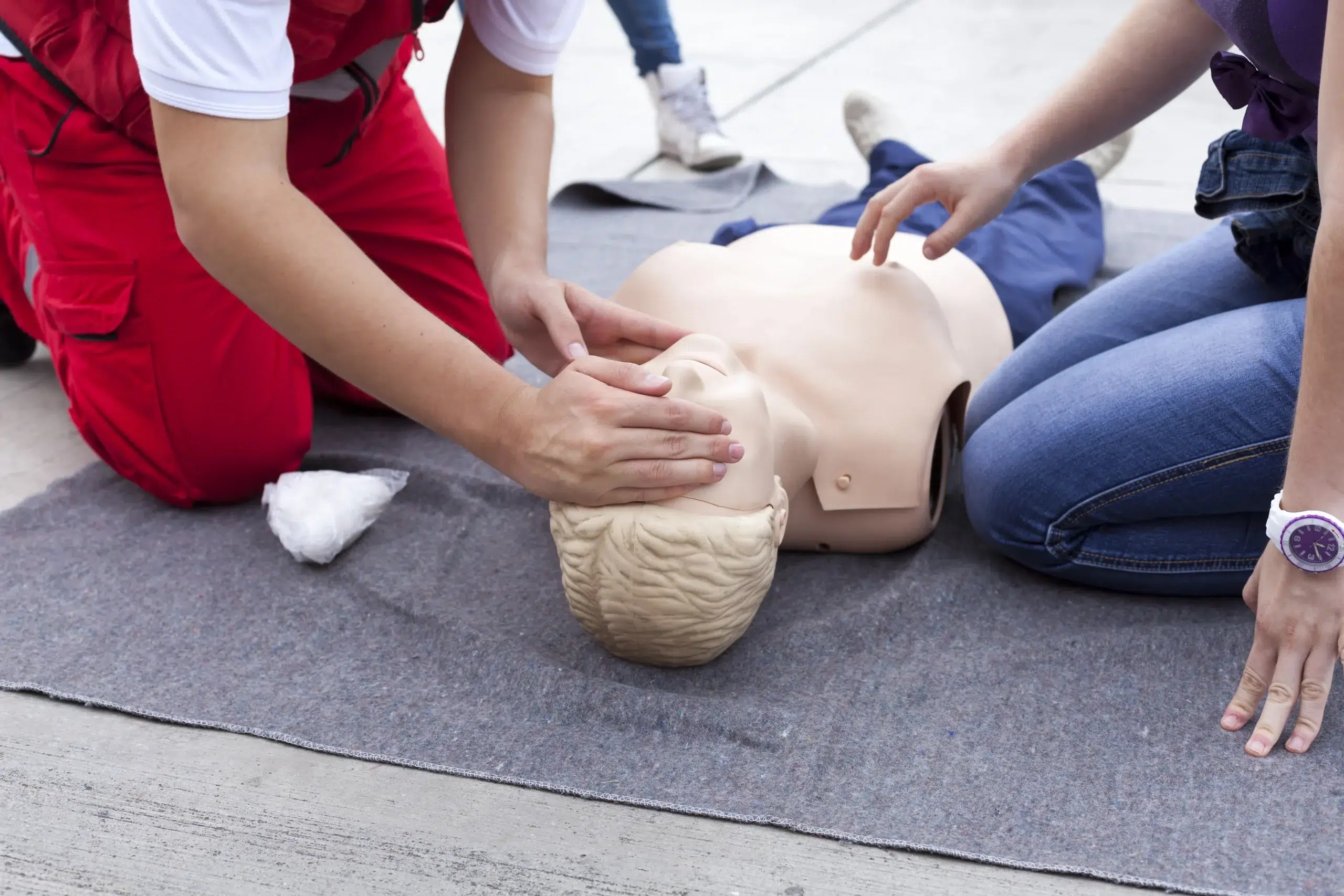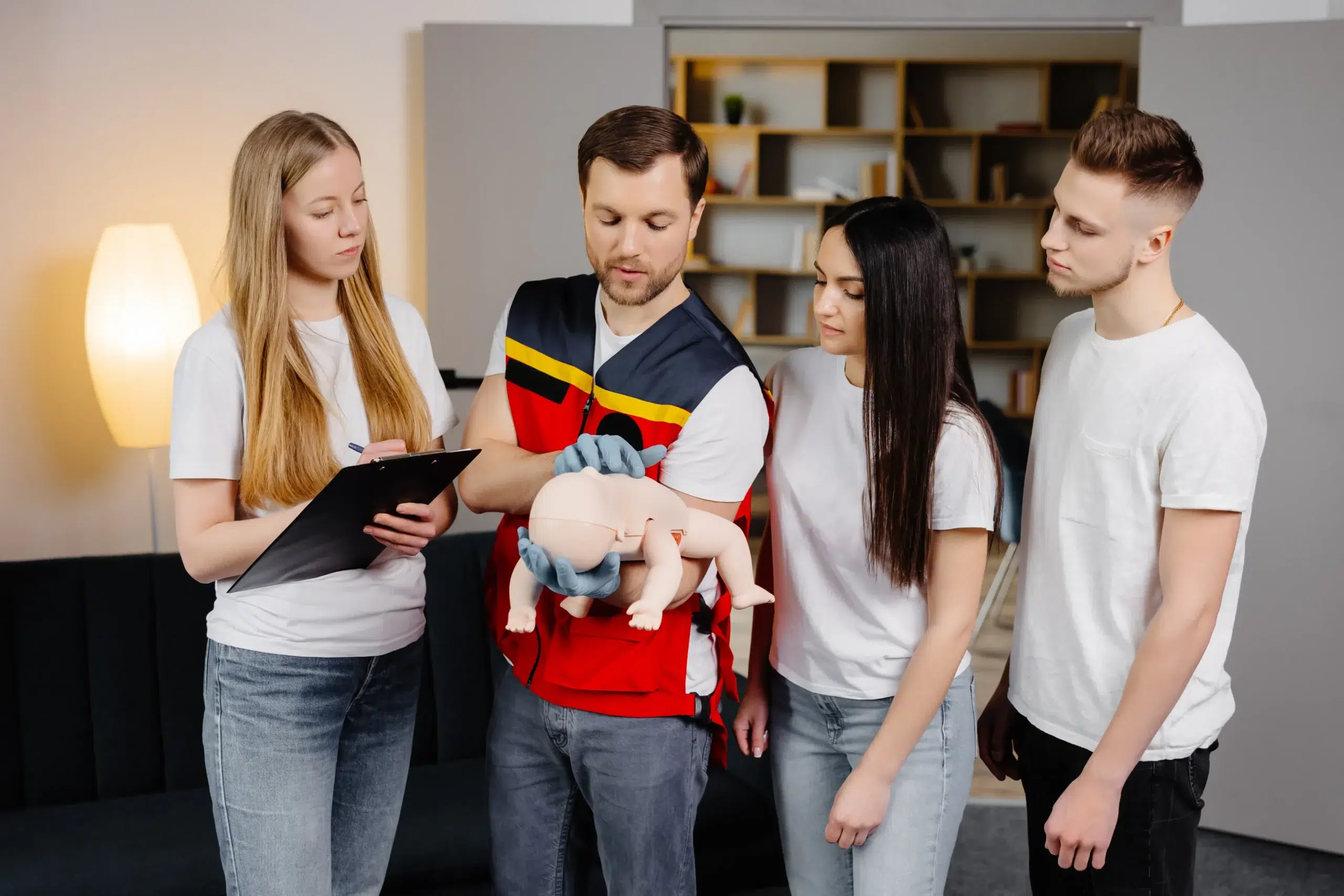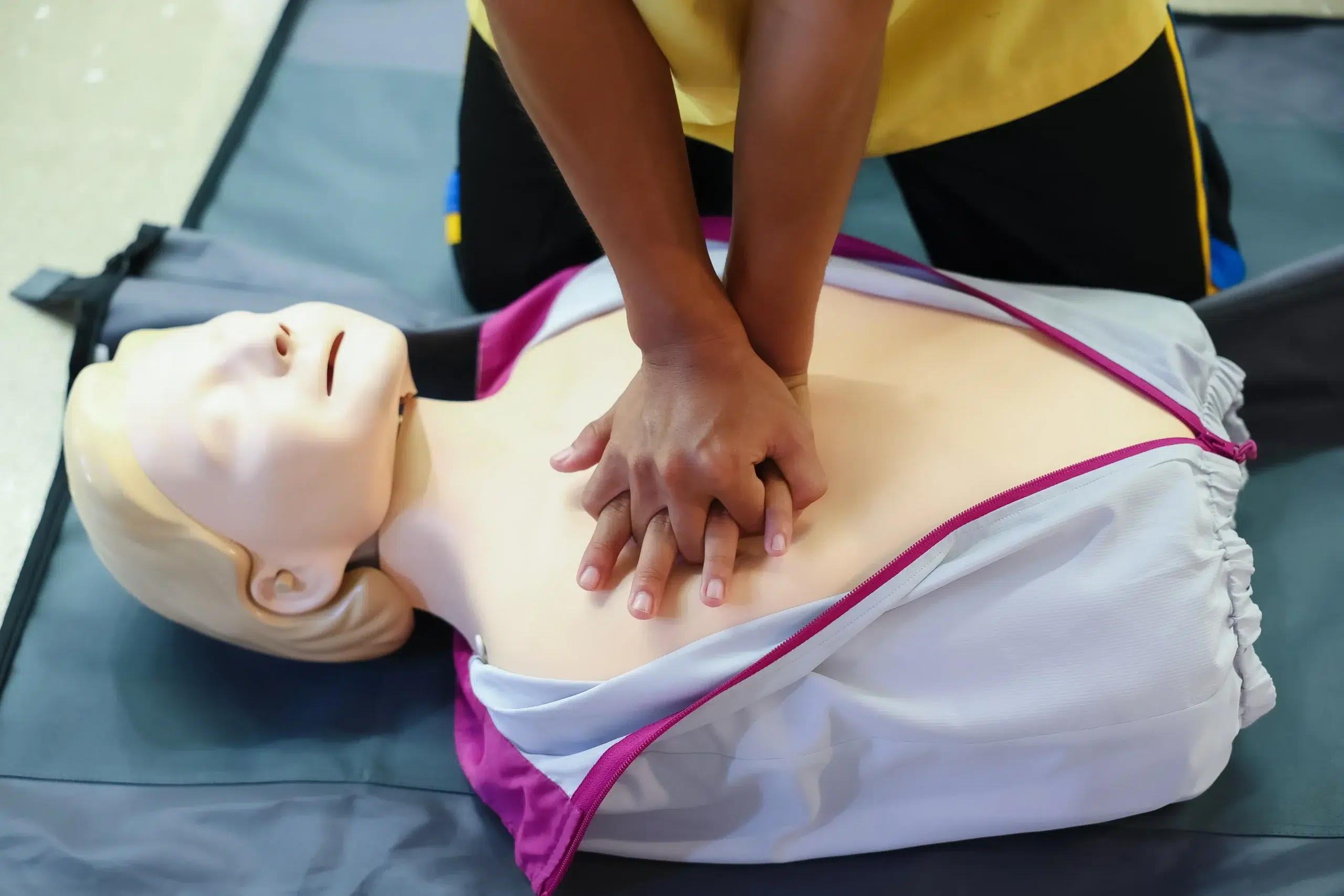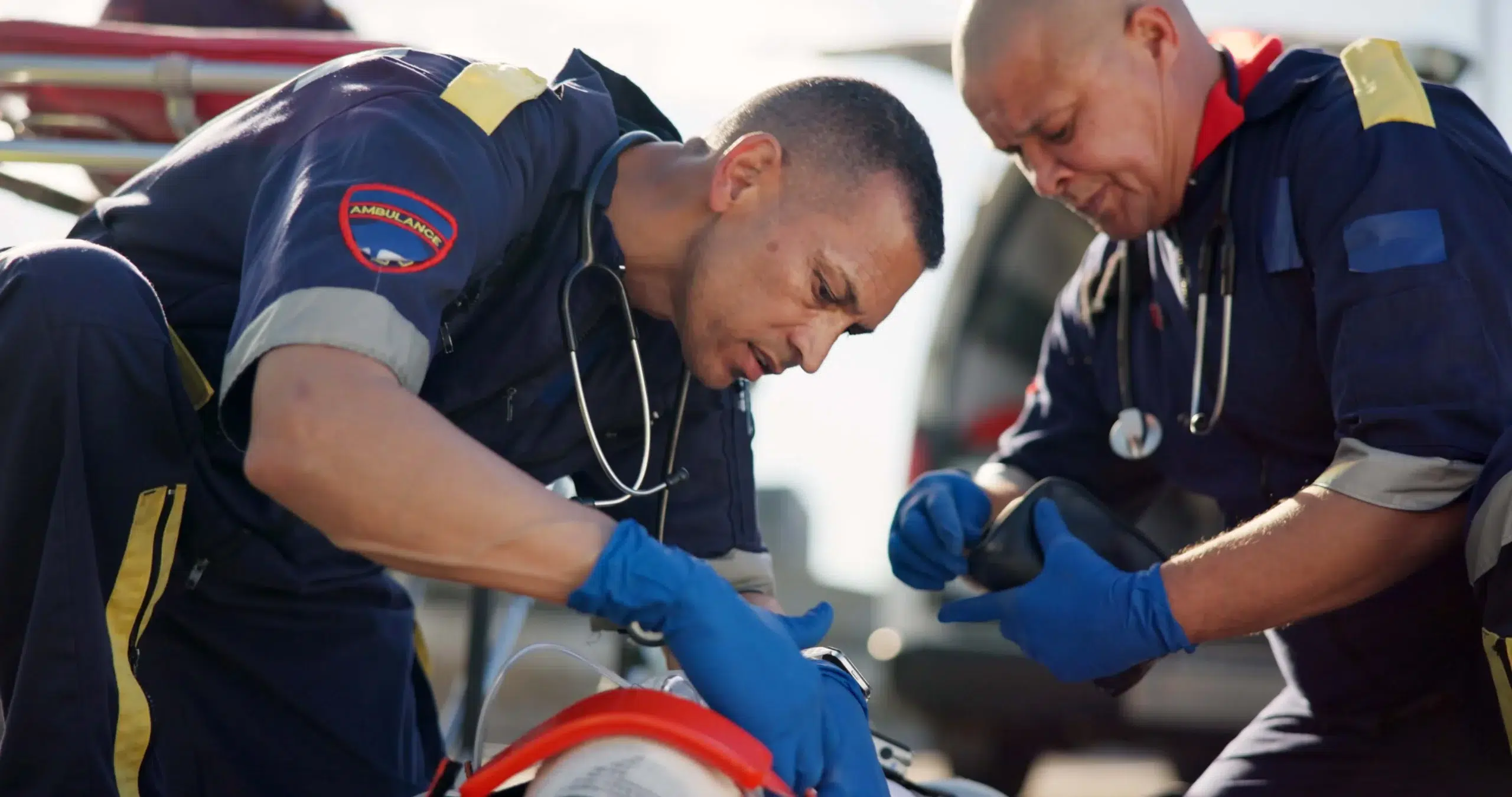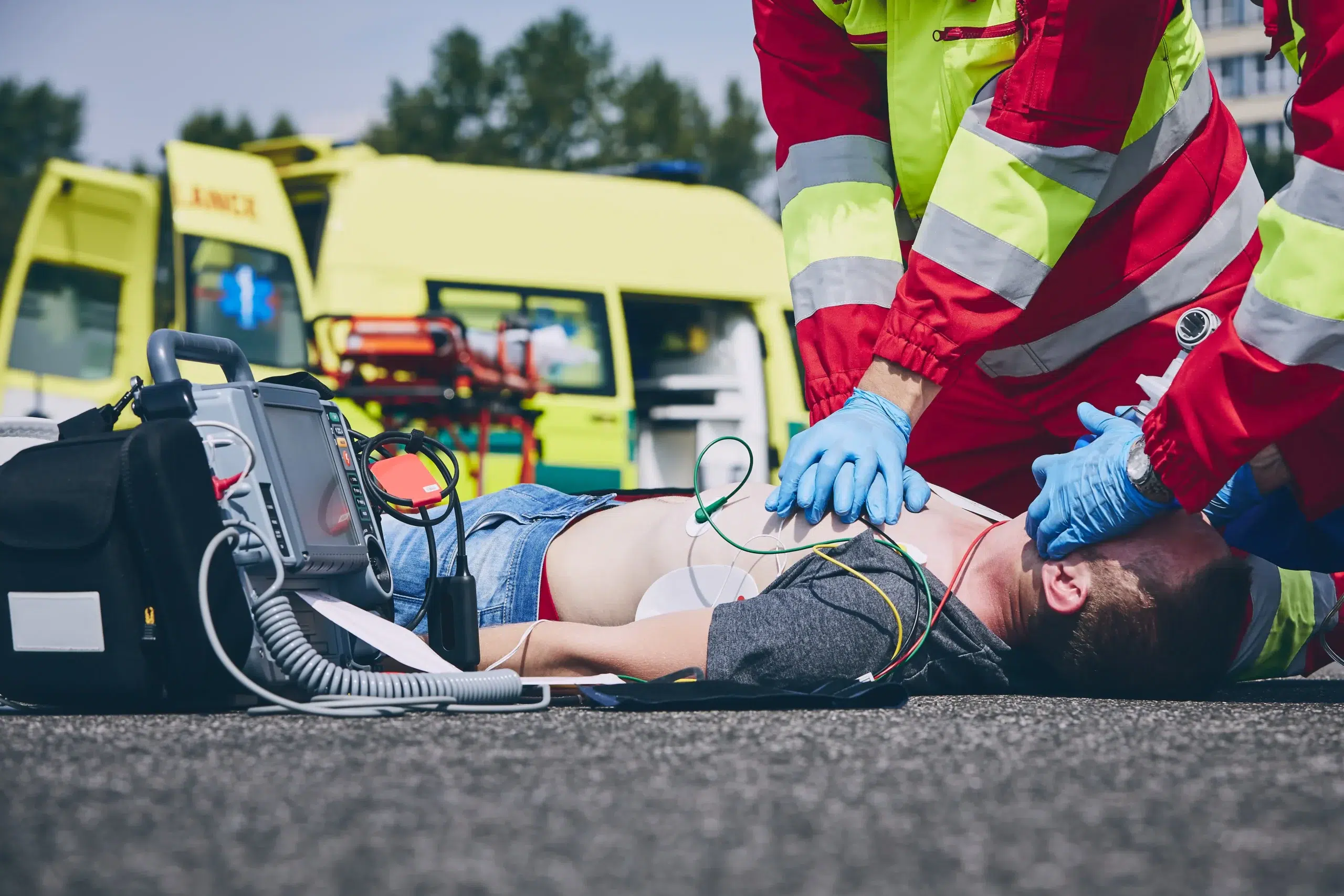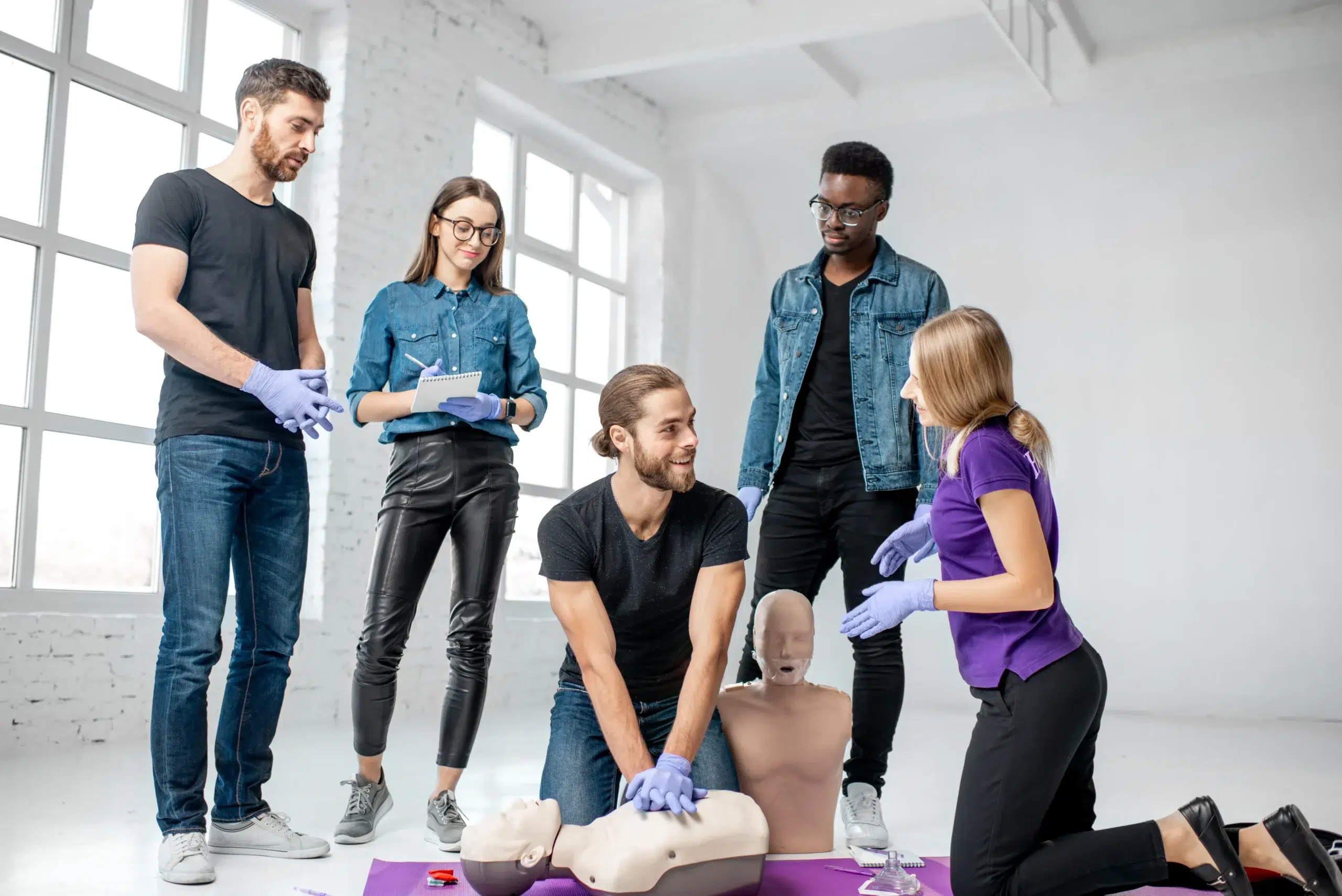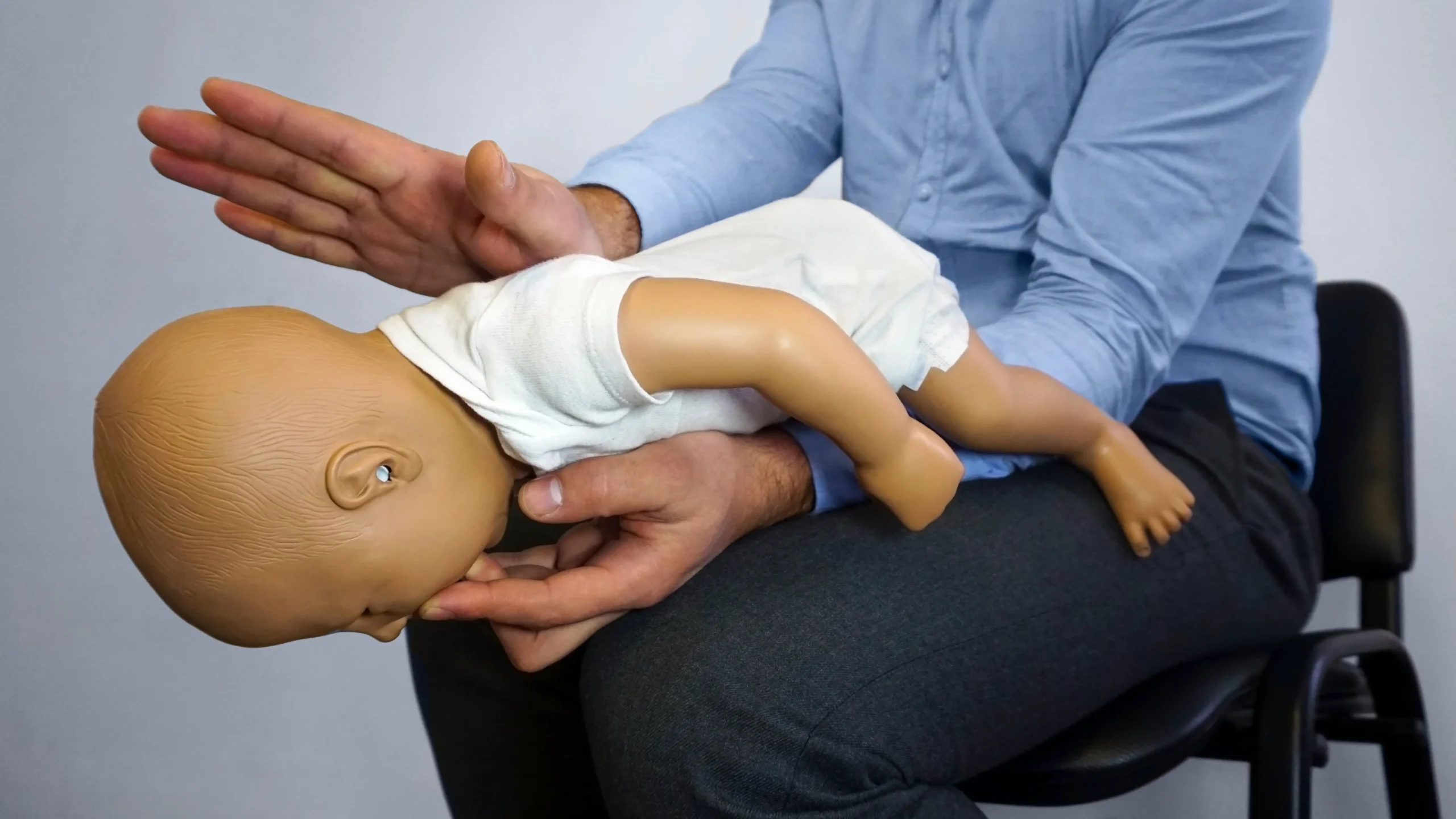For healthcare professionals, continuous learning and skill development are essential for providing the best possible patient care. ACLS certification is a significant step in that direction, equipping you with the advanced knowledge and skills to manage complex cardiovascular emergencies. This guide provides a comprehensive overview of ACLS, including its importance, course content, and how to find the right ACLS courses in San Jose. We’ll explore the certification process, discuss costs and discounts, and offer practical tips for preparing for your training. Whether you’re a seasoned healthcare provider or just starting your career, this post will help you understand the value of ACLS and how to pursue certification effectively.
Key Takeaways
- ACLS builds essential skills for healthcare professionals: Mastering advanced cardiovascular life support techniques beyond basic CPR empowers you to manage complex cardiac emergencies, leading to better patient outcomes.
- Choosing the right ACLS course matters: Consider your learning style, experience, and schedule when selecting a program. Prioritize courses that combine online learning with hands-on, in-person training.
- Preparation leads to ACLS success: Understand the course structure, content, and assessment methods. Utilize practice exams, mobile apps, and instructor support to enhance your learning and boost your confidence for the certification exam.
What is ACLS & Why is it Important?
Advanced Cardiovascular Life Support (ACLS) is a set of advanced, evidence-based protocols designed to maximize the chances of survival during serious cardiovascular emergencies. Think of it as the next level up from basic CPR. While CPR focuses on immediate life support, ACLS addresses more complex situations, providing healthcare professionals with the tools to manage everything from cardiac arrest and stroke to acute coronary syndromes. It’s a comprehensive approach that goes beyond basic life support techniques. This specialized training equips medical personnel with the knowledge and skills to make quick, informed decisions in high-pressure situations, ultimately leading to better patient outcomes. For a deeper understanding of common misconceptions surrounding ACLS, this article offers valuable insights.
ACLS isn’t just for doctors in the ER. It’s relevant for a wide range of healthcare providers, including nurses, paramedics, respiratory therapists, and anyone who might encounter a cardiovascular emergency in their practice. ACLS certification is often a requirement for many healthcare roles, demonstrating a commitment to providing the highest standard of care. The training covers a broad spectrum of topics, from airway management and rhythm recognition to effective team dynamics and post-resuscitation care. AHA ACLS classes in San Jose, for example, play a crucial role in preparing healthcare professionals to handle these critical situations effectively. By emphasizing a systematic approach and incorporating the latest medical advancements, ACLS empowers healthcare teams to deliver timely and effective interventions, significantly improving a patient’s chances of recovery. You can explore more about the importance of ACLS training and its impact on patient care in this informative resource.
Find Top ACLS Courses in San Jose
Finding the right ACLS course can feel overwhelming, so we’ve compiled some reputable providers in San Jose to help you get started.
Safety Training Seminars
Safety Training Seminars offers various American Heart Association courses, including BLS, ACLS, PALS, and First Aid. They focus on providing accessible training with a low-price guarantee and flexible scheduling. Serving Newark, Fremont, and San Jose, they are a convenient option for those in the area. For more information and course schedules, visit their website. They also offer CPR and First Aid training and you can find their BLS course schedule here.
CPR Training Center
Located in San Jose, CPR Training Center specializes in AHA certifications, including ACLS, BLS, and PALS. Their focus on adhering to the latest AHA guidelines ensures students receive up-to-date training. If you’re looking for ACLS certification in San Jose, they are worth considering.
American Heart Association Training Centers
The American Heart Association has various training centers throughout San Jose offering standardized ACLS courses that meet the highest quality standards. Whether you’re a seasoned healthcare provider or just starting out, you can find an AHA training center that fits your needs. AHA ACLS classes in San Jose are a reliable option for comprehensive training.
Local Hospitals and Medical Centers
Many hospitals and medical centers in San Jose also offer ACLS certification courses, often geared towards healthcare professionals working within their system. Check with local hospitals like Good Samaritan Hospital, Regional Medical Center of San Jose, or O’Connor Hospital to see if their ACLS training aligns with your schedule and requirements. You can find more information on general ACLS certification requirements online.
Understand ACLS Course Content and Structure
Understanding the content and structure of an Advanced Cardiovascular Life Support (ACLS) course is key to successful completion and application of these lifesaving skills. Here’s what you can expect:
Key Topics Covered
ACLS courses cover essential topics, focusing on the systematic approach to patient care during cardiovascular emergencies. You’ll learn effective team dynamics and communication—critical for coordinating efforts in high-pressure situations. The curriculum includes recognizing and managing cardiac arrest, implementing airway management techniques, and understanding the appropriate use of medications in various emergency scenarios. This comprehensive approach, incorporating realistic scenarios like those described by Cascade Training Solutions, prepares healthcare professionals for the complex challenges they might face. You’ll also learn how to identify and treat life-threatening arrhythmias.
Review Pre-course Online Study Materials
Before your in-person ACLS class, complete the required online pre-course study materials from the AHA. Bring your completion certificate to the first day of class. This foundational coursework introduces key ACLS concepts and prepares you for the hands-on training. Completing these materials beforehand allows you to focus on practical application and skill development during the in-person sessions, as highlighted by CPR Training Center.
Explore In-person Training Components
ACLS courses blend online learning with in-person training sessions. These sessions emphasize hands-on learning and skill practice. Classes are available for individuals and groups, often with discounts for group registrations. You’ll receive your certification upon successful completion of the skills test, typically on the final day of the course. Providers like Safety Training Seminars offer various course schedules and options.
Practice with Hands-on Simulations
Realistic simulations of emergency scenarios are a crucial part of ACLS training. These simulations provide a safe environment to practice applying your knowledge and skills. Working through these scenarios builds confidence and competence in applying ACLS protocols during actual emergencies. You’ll work with a team, reinforcing the importance of clear communication and coordinated efforts in a high-stress environment. These hands-on simulations replicate the challenges healthcare professionals may face, bridging the gap between theory and practice, much like the examples provided by Cascade Training Solutions.
Explore ACLS Course Costs & Discounts
Average San Jose Price Range
When budgeting for your ACLS course, expect to pay somewhere between $150 and $200 in San Jose. This cost typically covers your instruction, course materials, and the certification exam. Keep in mind that prices can vary based on the training center and what’s included in their program. It’s always smart to compare a few different options before committing to a specific ACLS course. Safety Training Seminars offers a low price guarantee to help make high-quality training accessible.
Find Group Discounts & Special Offers
If you’re training with colleagues, you might be able to find a discount. Many training centers, including Safety Training Seminars, offer reduced rates for groups. This can be a great way to save money if you’re coordinating training for your team or workplace. Contact Safety Training Seminars to learn more about group discounts. Some providers also offer periodic specials or promotions, so it’s worth checking for current deals.
Compare Recertification & Initial Certification Costs
Your initial ACLS certification is valid for two years. After that, you’ll need to recertify. The cost of recertification is usually less than the initial certification course, but confirm pricing with your chosen provider. Staying current with your certification is essential for healthcare professionals, so factor these ongoing costs into your professional development plan.
Understand Prerequisites & Certification
Before you jump into an Advanced Cardiovascular Life Support (ACLS) course, it’s helpful to understand the requirements and what to expect from the certification process. This section covers everything from prerequisites to renewal, so you’ll know exactly what’s involved.
Required Prior Knowledge & Skills
A current American Heart Association Basic Life Support for Healthcare Providers (BLS) certification is required before enrolling in an ACLS course. This foundational knowledge creates a baseline for the advanced concepts you’ll learn in ACLS. If your ACLS certification has lapsed, you’ll need to retake the entire course to refresh your skills and ensure you’re up-to-date on the latest guidelines and best practices.
Enroll in an ACLS Course
Finding the right ACLS course is the next step. Whether you’re a medical student, nurse, or experienced physician, look for a course that aligns with your experience level. Safety Training Seminars offers ACLS courses in Newark, catering to healthcare providers at all career stages. You can also check with your employer, professional organization, or local hospitals for other training centers.
Take the Certification Exam & Skills Test
ACLS courses typically involve a written exam and a practical skills test. These assessments evaluate your understanding of the material and your ability to perform essential life-saving procedures. After successfully completing both, you’ll receive an AHA ACLS Provider Course Completion Card, valid for two years. This card verifies your certification and demonstrates your proficiency in advanced cardiovascular life support. Learn more about ACLS certification on the American Heart Association website.
Understand Validity Period & Renewal Requirements
Your ACLS certification is valid for two years. To maintain your credentials and stay current with evolving medical practices, plan to recertify before your card expires. Regular recertification is crucial for healthcare professionals. It ensures your skills and knowledge remain sharp and aligned with the latest guidelines, demonstrating your commitment to providing high-quality patient care. You can find more information on recertification requirements and best practices on sites like Medtigo.
Choose the Right ACLS Course in San Jose
Finding the right Advanced Cardiovascular Life Support (ACLS) course in San Jose requires careful consideration. The best course for you will depend on your learning style, experience, and schedule. Let’s break down what you should look for when making your decision.
Factors to Consider
ACLS courses cater to a wide range of healthcare providers, from beginners to seasoned professionals needing recertification. Consider your current skill level and comfort with ACLS concepts. Are you a medical student seeking initial certification or a practicing physician brushing up on your knowledge? Some courses may offer more advanced training or specialized instruction. Understanding your needs is key. Think about your learning preferences, too. Do you thrive in a traditional classroom or prefer the flexibility of online learning? Knowing this will help you narrow down your options. Location is another important factor. Choose a training center that’s conveniently located and easily accessible. Safety Training Seminars, for example, offers ACLS courses in Newark, serving the broader San Jose area, including Fremont.
Online vs. In-person Options
Both online and in-person ACLS courses have their advantages. Online courses offer flexibility, allowing you to learn at your own pace. However, ACLS training involves more than just understanding theory. It requires applying that knowledge in realistic emergency scenarios. In-person training provides hands-on practice, simulations, and direct interaction with instructors and peers. This can be invaluable for developing critical thinking and teamwork skills. ACLS training scenarios often mimic real-life situations, giving you the chance to hone your responses in a safe environment.
Check Scheduling & Class Availability
Before committing to a course, check the schedule and class availability. Look for a provider that offers courses frequently and at various times to accommodate your schedule. Also, consider the course duration. Some providers offer intensive, shorter programs, while others spread the training out. Safety Training Seminars offers a comprehensive range of American Heart Association (AHA) certified courses, including BLS, ACLS, and PALS, ensuring high-quality training aligned with the latest AHA guidelines. This can be helpful if you’re looking to complete multiple certifications. Finally, inquire about class size. Smaller classes often allow for more personalized attention from instructors and more opportunities to ask questions.
Prepare for Your ACLS Training
Getting ready for your ACLS class? Here’s what you can expect and how to best prepare. Understanding the course structure, assessments, and key topics will help you feel confident and ready to learn.
Course Duration & Intensity
ACLS courses blend lectures, hands-on practice, and skills testing. A typical ACLS class takes about six hours, balancing theoretical knowledge with the practical skills you’ll need in an emergency. CPR Training Center offers various ACLS courses. If you’re looking for a deeper dive, the full ACLS course runs about 15 hours and 20 minutes, including breaks and lunch. This extended format gives a more comprehensive understanding of advanced cardiovascular life support. The American Heart Association provides more information on their ACLS page.
Practical Assessments & ECG Interpretation
ACLS training goes beyond the books. You’ll encounter realistic scenarios designed to prepare you for actual emergencies. Hands-on training is a critical part of the process. Expect to work with voice-activated mannequins, allowing you to practice your skills in a simulated environment. Instructors are available to guide you, ensuring you’re comfortable and competent with the procedures. ECG interpretation is another crucial element. You’ll learn to recognize and respond to different heart rhythms, a skill essential for effective patient care. Safety Training Seminars offers hands-on ACLS training in San Jose.
Pharmacology in ACLS
Understanding the medications used in ACLS is vital. The course covers essential pharmacology, focusing on the drugs used in pre-arrest, arrest, and post-arrest situations. This includes proper dosing, drug selection, and safe administration. Resources like this article on common ACLS mistakes offer a refresher on best practices and common medication errors. Being comfortable with these pharmacological principles will give you the confidence to make quick, informed decisions during critical moments. The American Heart Association offers an ACLS course for experienced providers that delves deeper into these topics.
Overcome Common ACLS Challenges
It’s normal to feel apprehensive about your ACLS training, especially if it’s your first course. With the right approach, you can overcome common challenges and succeed. Here’s how:
Understand Complex Material
ACLS courses cover complex information, from pharmacology to electrocardiogram (ECG) interpretation. Break the material down into smaller, manageable chunks, focusing on one concept at a time. Combine visual aids with hands-on practice to solidify your understanding. Realistic scenarios, like those used in ACLS training simulations, can bridge the gap between theory and practice.
Manage Time Effectively
Balancing ACLS training with your existing responsibilities can be tricky. Create a realistic study schedule that fits your lifestyle. Explore different ACLS course times and formats to find the best fit. Factor in time for pre-course reading and review. Even short, focused study sessions can make a big difference.
Overcome Simulation Anxiety
Simulations are a core component of ACLS training. While valuable, they can also be a source of anxiety. Remember that simulations are designed to be a learning experience. View them as an opportunity to practice your skills in a safe environment. Familiarize yourself with the types of scenarios you might encounter to increase your comfort level.
Prepare for Recertification
Even after earning your ACLS certification, staying current with the latest guidelines and best practices is crucial. Regular ACLS recertification keeps your skills sharp. Plan and consider it an ongoing investment in your professional development. Treat each recertification course as a chance to refresh your knowledge and refine your techniques.
Benefit from ACLS Certification
Earning your ACLS certification isn’t just about checking a box; it’s about gaining skills and confidence that can significantly impact your professional and personal life. Whether you’re a seasoned healthcare provider or just starting out, ACLS certification offers valuable benefits.
Advance Your Career
ACLS certification is often a requirement for many healthcare roles, especially in critical care. Holding this certification shows a commitment to advanced cardiovascular life support knowledge and skills, making you a more competitive candidate for jobs and promotions. The American Heart Association designs ACLS classes to benefit healthcare providers at all career stages, from beginners to experienced professionals seeking recertification. This certification can open doors to new opportunities and specializations within your field. For example, ACLS certification can be particularly advantageous for nurses, paramedics, and other healthcare professionals working in emergency rooms, intensive care units, and other critical care settings.
Enhance Emergency Response Skills
ACLS certification equips you with the skills to manage complex cardiac emergencies effectively. You’ll learn advanced life-saving techniques, including how to recognize and treat life-threatening arrhythmias, administer medications, and provide advanced airway management. These skills are crucial for providing high-quality patient care during critical situations. ACLS training enhances the quality and effectiveness of care delivery by providing healthcare providers with the specialized knowledge to manage these complex cardiac emergencies. This translates to improved patient outcomes and a greater sense of preparedness in any healthcare setting.
Build Confidence in High-Stress Situations
One of the most significant benefits of ACLS certification is the confidence it instills. Knowing you have the training and skills to handle life-or-death situations can make all the difference when faced with a real emergency. ACLS courses often incorporate realistic scenarios and simulations, allowing you to practice your skills in a safe and controlled environment. This hands-on experience helps you build muscle memory and develop the critical thinking skills necessary to remain calm and effective under pressure. This increased confidence benefits you and reassures your colleagues and patients, creating a more positive and effective healthcare environment.
Access ACLS Prep Resources & Support
Preparing for your ACLS course can make a real difference in your confidence going into the exam. Here’s how to access helpful resources and support to maximize your learning:
Recommended Study Materials
Before your ACLS class, complete the required online pre-course work through the American Heart Association website. Make sure to bring your completion certificate to the first class. You’ll also need the ACLS Provider Manual, available as an ebook or paperback. Often, you can purchase the ebook directly from your training center.
Practice Exams & Mobile Apps
Take advantage of practice resources. Many programs offer practice exams and mobile apps to reinforce key concepts and test your knowledge. Consistent practice with these tools can significantly improve your understanding and retention of ACLS protocols.
Additional ECG Courses
Consider supplementing your ACLS prep with an online ECG rhythm course. A solid grasp of ECG interpretation is crucial for ACLS, and a dedicated course can strengthen this essential skill.
Get Instructor Support & Guidance
While ACLS skills testing is often self-directed, remember that instructor support is available. Don’t hesitate to reach out with questions or concerns. Many instructors offer phone support to help you succeed. Knowing you have a resource to turn to can make a big difference in your learning experience.
Related Articles
- AHA ACLS Classes in Newark, CA – Newark CPR Classes
- BLS Courses in San Jose: The Complete Guide – Newark CPR Classes
- CPR Certification in San Jose: Your Complete Guide – Newark CPR Classes
- Discount Group Classes – Newark CPR Classes
- Low Price Guarantee CPR Classes in Newark, CA
Frequently Asked Questions
What exactly does ACLS cover that basic CPR doesn’t?
ACLS builds upon the foundational skills of CPR. It delves into more complex cardiovascular emergencies, encompassing a broader range of interventions like medication administration, advanced airway management, and the treatment of specific heart rhythms. It also emphasizes effective team dynamics and communication in critical situations.
If I’m not a doctor or nurse, do I really need ACLS certification?
While ACLS is essential for physicians and nurses, it’s also highly relevant for other healthcare professionals like paramedics, respiratory therapists, and anyone who might encounter cardiovascular emergencies in their practice. The specific requirements vary depending on the healthcare setting and role.
How do I find a reputable ACLS course near me?
Start by checking the American Heart Association website for certified training centers in your area. You can also inquire with local hospitals, medical centers, and professional organizations for recommendations. Look for providers with experienced instructors, comprehensive curriculums, and convenient scheduling options.
What’s the typical cost of an ACLS course, and are there any ways to save money?
ACLS course fees vary depending on location and provider but generally fall between $150 and $200. Many training centers offer discounts for group registrations, so if you’re training with colleagues, it’s worth inquiring about group rates. Keep an eye out for special promotions or discounts offered by individual providers.
How often do I need to recertify in ACLS, and what does that process involve?
ACLS certification is typically valid for two years. Recertification usually involves completing a shorter refresher course and passing the required assessments. Staying current with your certification ensures you’re up-to-date on the latest guidelines and best practices in advanced cardiovascular life support.
